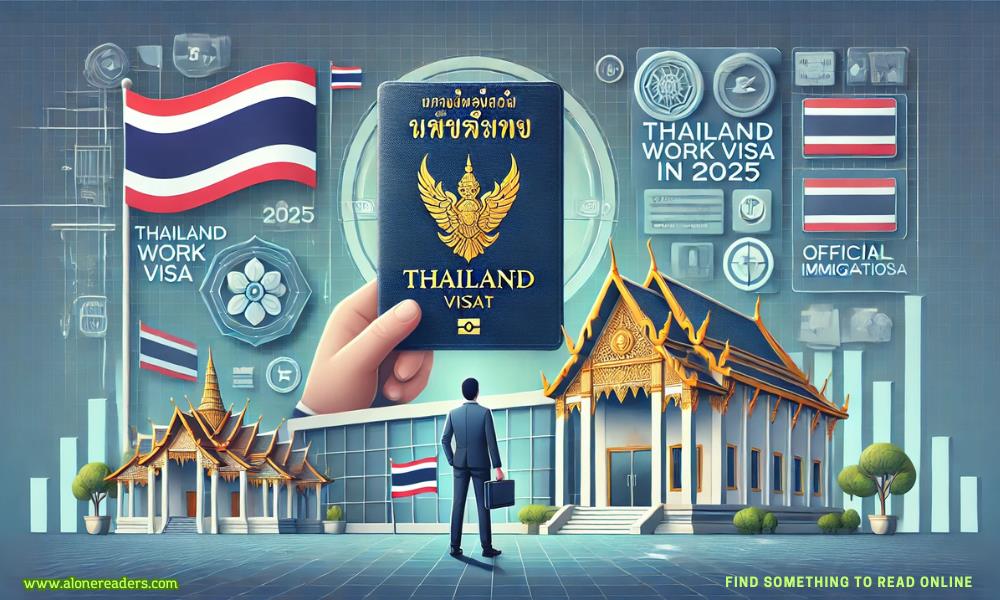
Thailand continues to be a popular destination for expatriates seeking work opportunities amidst its vibrant culture, stunning landscapes, and growing economy. Whether you're aiming to advance your career, experience a new culture, or enjoy the tropical climate, obtaining a Thailand work visa is a crucial first step. This comprehensive guide provides everything you need to know about securing a Thailand work visa in 2025, including visa types, application requirements, processes, fees, durations, and important precautions.
A Thailand work visa, officially known as the Non-Immigrant B Visa, allows foreign nationals to legally work in Thailand. This visa is essential for anyone intending to engage in employment, business activities, or professional services within the country. The Non-Immigrant B Visa is the primary gateway to obtaining a work permit, which further legitimizes your employment status in Thailand.
Types of Work Visas
For the purpose of this guide, we will focus on the Non-Immigrant B Visa, as it is the most commonly sought after for general employment purposes.
Before applying for a Thailand work visa, ensure you meet the following eligibility criteria:
Gathering the correct documentation is crucial for a successful visa application. Here is a list of essential documents:
Securing a Thailand work visa involves several steps. Follow this step-by-step process to enhance your chances of a successful application.
Step 1: Obtain a Job Offer
Before applying for a visa, secure a job offer from a recognized Thai employer. The employer plays a pivotal role in sponsoring your visa and work permit application.
Step 2: Gather Necessary Documents
Collect all required documents as outlined above. Ensure that each document is complete and accurate to avoid delays or rejections.
Step 3: Submit Visa Application
Submit your visa application at the nearest Royal Thai Embassy or Consulate-General. Many embassies now offer online application services, but confirm with your local embassy.
Step 4: Attend Visa Interview
Some applicants may be required to attend an interview. Be prepared to discuss your employment details and intentions in Thailand.
Step 5: Await Approval
Processing times can vary, typically ranging from a few days to several weeks. Track your application status through the embassy’s portal if available.
Step 6: Receive Your Visa
Once approved, collect your visa from the embassy. Verify all details for accuracy before traveling to Thailand.
Step 7: Apply for a Work Permit
Upon arrival in Thailand, apply for a work permit within 90 days. Your employer usually assists with this process, submitting necessary documents to the Ministry of Labour.
The Non-Immigrant B Visa is typically issued for a 90-day period, during which you must apply for a one-year visa extension. Extensions are granted based on continued employment and adherence to visa regulations. After one year, you can renew your visa annually, provided you meet all requirements.
SMART Visa Duration
For those eligible under the SMART Visa category, durations can extend up to four years, offering greater stability and fewer renewal requirements.
Visa fees vary depending on the embassy and the type of visa. As of 2023, typical fees are as follows:
Additional costs may include:
Always verify the latest fee structure on the Royal Thai Embassy website.
Navigating the Thai visa system can be complex. Here are some important cautions and tips to ensure a smooth process:
Avoid Common Mistakes
Understand Thai Immigration Laws
Thailand has strict immigration regulations. Familiarize yourself with the rules to maintain legal status and avoid deportation.
Health and Insurance
Having health insurance is not only advisable but may also be required for visa approval. Ensure your policy meets Thai standards.
Cultural Adaptation
Understanding and respecting Thai culture and workplace norms can enhance your professional experience and integration.
Seek Professional Assistance
If you're unsure about the process, consider consulting with a visa specialist or immigration lawyer to guide you through the application.
Securing a Non-Immigrant B Visa is just the first step. To legally work in Thailand, you must obtain a work permit. Here's how to transition smoothly:
Eligibility for Work Permit
Application Process
Work Permit Renewal
Work permits are typically valid for the same duration as your visa and must be renewed annually. Ensure timely submissions to avoid lapses.
Obtaining a work visa in Thailand offers numerous advantages:
While working in Thailand can be rewarding, be aware of potential challenges:
Conclusion
Securing a Thailand work visa in 2025 involves understanding the visa types, meeting eligibility requirements, preparing thorough documentation, and navigating the application process meticulously. By following this comprehensive guide, you can enhance your chances of obtaining a Non-Immigrant B Visa and successfully transitioning to a work permit, paving the way for a rewarding professional and personal experience in Thailand. Always stay informed about the latest regulations and seek professional assistance when needed to ensure a smooth and legal stay in this vibrant Southeast Asian nation.
Please note that visa regulations and procedures are subject to change. Always consult the Royal Thai Embassy or official government websites for the most up-to-date information.